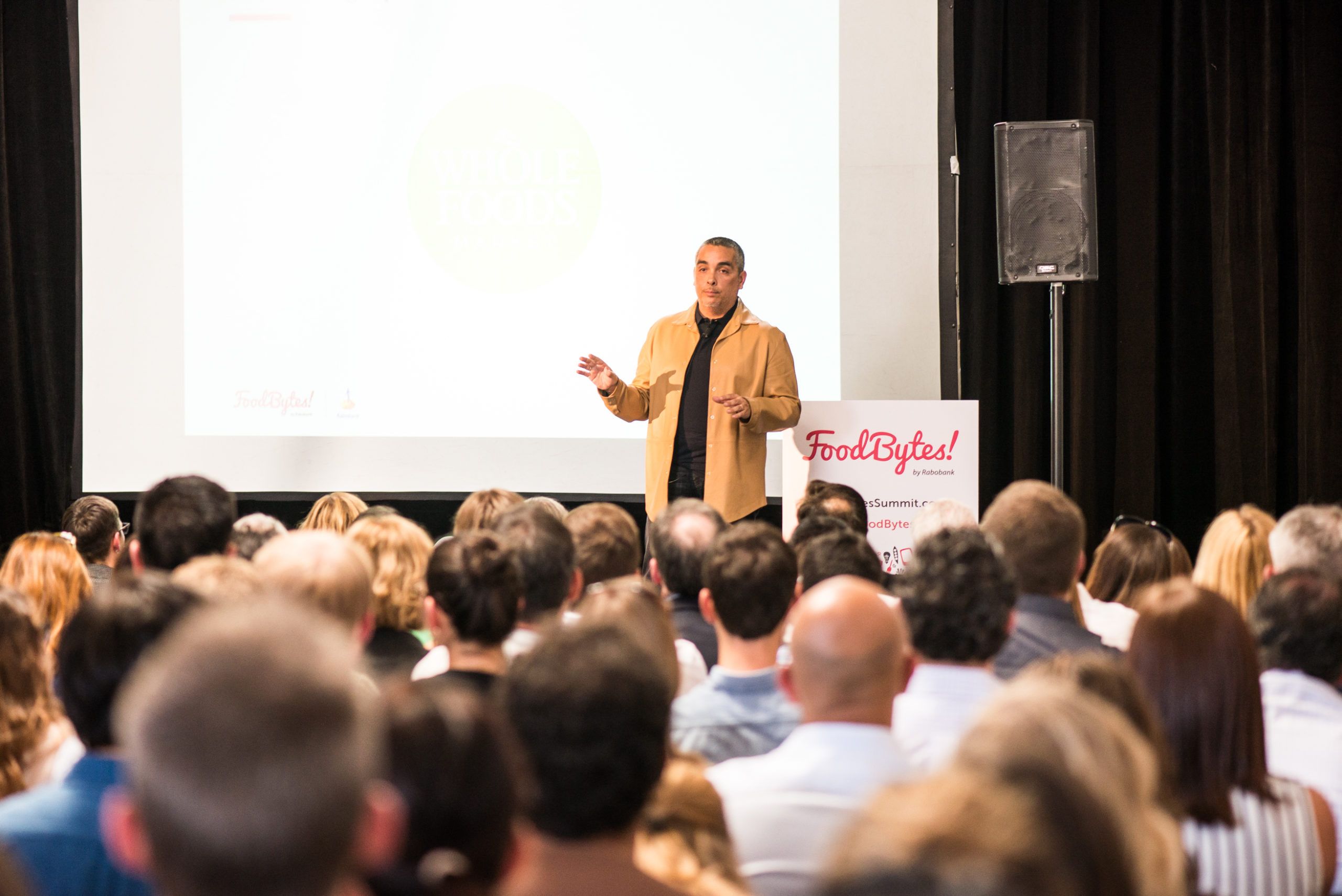Manuel Gonzalez is managing director for North America and the head of innovation at Rabobank. He’s also the founder of FoodBytes! which is a business competition for food system startups. The competition has expanded over the years from its start in San Francisco and New York. Last year FoodBytes! also went to Boulder and made its international debut in Sydney, Australia in the presence of Dutch royalty! This year, it will move to Europe for the first time with other plans cooking for other parts of the globe too.
This year’s first event will be at the competition’s home of San Francisco on March 16. Applications have closed, but you can still attend by purchasing tickets here (and use the promo code AGFUNDER for 20% off!)
I caught up with Gonzalez ahead of the event to find out his outlook for 2017.
LBT: It’s a big year for FoodBytes! What are you most excited about?
MG: I’m incredibly excited that we’re kicking off 2017 in San Francisco, where we first began FoodBytes! back in 2015. This city is such a bustling center of global innovation, which makes starting the year off here ideal.
I’m also eagerly anticipating the innovation that I know I’ll see take the stage this year. Just when I think I can’t be more impressed, the pitch companies outdo themselves. There really are so many incredible products and ideas out there that it gives more reason to feel entirely optimistic about the future, particularly about finding solutions to address global food challenges.
LBT: How have the types of startups that apply to pitch at FoodBytes! changed since you launched? (when did you launch?!)
MG: We began in 2015, and this will mark our sixth event in the US. The startups are similar in the sense that they are all looking to scale while attempting to solve an important problem that has a social impact. Now more so than when we originally launched, I see business models from these pitch companies that are slightly more complete. Now, there is a bigger and bigger ecosystem willing to find solutions and give support to these burgeoning companies.
LBT: Do you expect to see more of the same this year?
MG: I expect 2017 to be an exciting and eventful year, with a continued emphasis on health. Given the changing consumer interests and views on health, I anticipate the world of plant-based alternatives to flourish across multiple food and beverage categories. Foods high in protein and micronutrients will become increasingly popular. We’re already seeing an increased interest in insect-proteins; insects leave a small environmental footprint and require less feed and water. It is exciting to see people becoming more aware of diet options that are healthy for both the body and the planet.
I also anticipate seeing improvements in supply chain transparency and innovations in the business model to address this issue. Whether it is traceability or connection between food producers and consumers, the industry awaits entrepreneurs to revolutionize the food supply chain.
Finally, I see more tech experiences being incorporated into the “food experience,” from VR/AR and AI to 3D printing.
LBT: Last year you held your first international event in Australia, and this year you’re going to Europe. How do the startups change from country-to-country?
MG: It is incredible to see how similar the pain points that these startups experience are, regardless of location. This could be because information is now so instant and global, we find people around the world finding solutions for similar problems.
LBT: Do you keep track of FoodBytes! alumni? Do you have any success stories to share?
MG: We are incredibly proud of our FoodBytes! alumni, and as a result love to showcase their ongoing achievements via social media channels and press releases. Many of our alumni are continuing to find ways to sustain growth while improving on social impacts. For example, the Boulder-based company, Mad Agriculture, harnesses the nutrient recycling abilities of insects to turn food waste into feed supplement. This process lessens our dependence on unsustainable ingredients, such as fishmeal.
More recently, FoodBytes! alumni Kuli Kuli received $4.25 million in a Series A funding round led by Kellogg Company’s venture capital fund eighteen94. Kuli Kuli provides the high quality and nutritious moringa that is rich in iron, calcium, vitamins and antioxidants. The startup is dedicated to growing their supply chain by providing fair, sustainable wages to farmers and women-led co-operatives around the world.





